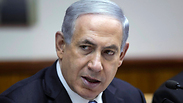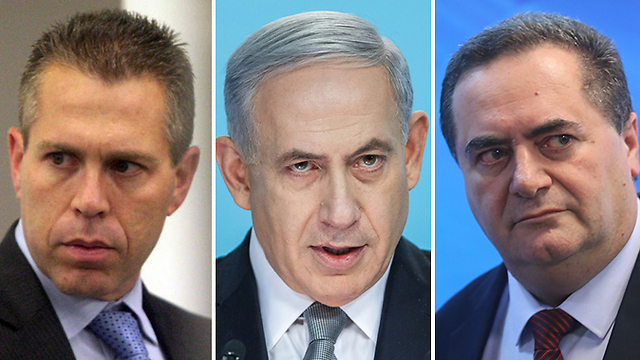
Who needs a security cabinet anyway?
Analysis: With a professionally weak cabinet suffering from an inflation of titles and honors, Israel's security issues will once again be managed and supervised by the prime minister, the defense minister and the IDF chief of staff, just like in the Second Lebanon War.
It's true that there is quite a lot of honor there, and that you brush against the state's top secrets and are amazed by the display of the special forces' abilities – but in practice it's nothing more than a political debate club with virtual teeth.
The cabinet, which is supposed to approve and supervise the defense establishment on critical issues like building force, intelligence, combat doctrines and unusual operational activity, never did it right and doesn't have the tools to do it right today either.
It didn't happen in the cabinets which had more ministers with a security background – like the 2006 cabinet which was harshly criticized by the Winograd Commission for its poor performance in the Second Lebanon War – and it certainly won't happen to the cabinet which has just been formed by Prime Minister Benjamin Netanyahu, which looks more like an anemic house committee list.

I doubt there is anyone in the Israeli government who knows about the issue of transportation infrastructures like Minister Yisrael Katz, but the moment he also accepted the title of the minister of intelligence affairs, he simply shot himself in the foot. In order for his opinion to be heard in the cabinet and in order not to make a fool of himself, Katz will have to spend at least four hours a day reading intelligence material of the Shin Bet, Mossad, Military Intelligence Directorate and other bodies.
Former Minister Dan Meridor – who the position was originally tailor-made for – spent entire days in the intelligence bodies in order to learn. Where will Katz find the time and the energy to spend half days reading intelligence material?
I doubt he will have the tools to know if he is really receiving cooperation, or if he is being excluded – as he will never see the "black" material, the really sensitive material which reaches the prime minister and perhaps the defense minister too.
The cabinet also includes the minister of strategic affairs, another hollow title. Defense Minister Moshe Ya'alon, who was given this title in the past, learned how worthless it is when he was ignored in the Marmara affair.
Minister Gilad Erdan, who fought bravely to receive this title, will seek to lead and make a change in the Iranian issue – in addition to his devotion to the negligible issue of rehabilitating the Israel Police.
But there is small problem here: The bodies involved in the Iranian issue are the Mossad, the Atomic Agency Commission and the Foreign Ministry, and all three are subject to Netanyahu. Is it possible that Erdan, with all due respect, will take hold of this pound of flesh and lead decisions on the Iranian issue in the cabinet?
Ministers Katz and Erdan are just an example of the professional weakness of the current cabinet, which is suffering from an inflation of titles and honors.
Even the organization which was supposed to compensate for the minister's inexperience and knowledge gaps – the National Security Council – is subject to the prime minister, so that he decides what the ministers will and will not know, when the cabinet will convene and at what frequency.
The fact that Netanyahu decided to place Yoav Galant – the only major-general in the government apart for the defense minister – only as an observer in the cabinet shows us what he really thinks about this cabinet as a professional body whose opinion should be considered.
So who needs a cabinet? Prime ministers have anyway always surrounded themselves with intimate, informal working group, which repeatedly reviewed the decisions made by the government and the cabinet.
Out of the 12 cabinet members and observers, the number of members with a deep understanding in security issues can be counted on less than one palm.
And so, in 2015 as well, Israel's security issues will be managed and supervised by the prime minister, the defense minister and probably also the IDF chief of staff, just like in the Second Lebanon War.
It's true that the Winograd Commission, which pointed to the cabinet's failures in 2006, recommended that the prime minister would be required to convene a "war cabinet" to operate alongside the cabinet at least during a serious security crisis, but who remembers that?










